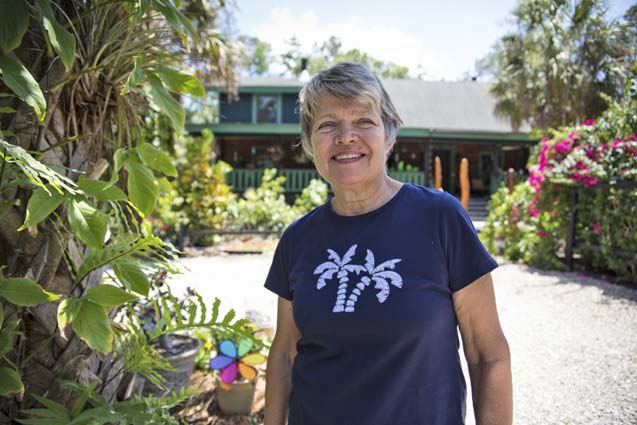
Pamela and Jamie Duran of Naples, Fla., had not spent much time worrying about fracking. Like most Floridians, they’d been repeatedly told it couldn’t happen there. Until it did.
Texas-based Dan A. Hughes Oil Company recently used a form of “enhanced extraction,” which fits the description of fracking, in Naples, the gateway to the Everglades. The drilling took place in the Sunniland Trend, an underground limestone formation with an oil reserve stretching from Fort Myers to Miami.
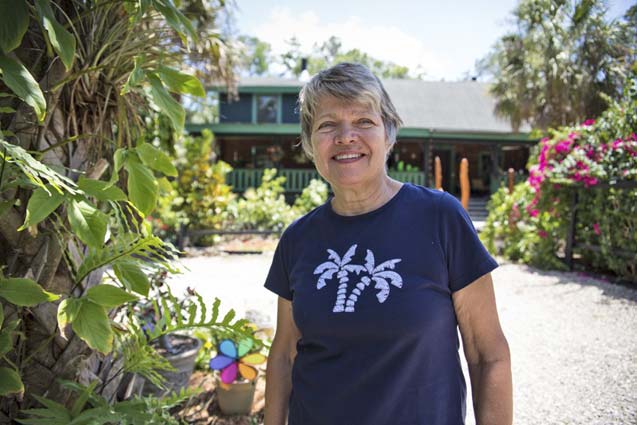 Pamela Duran in front of her home, 1000 feet from a proposed drill site in Naples, Florida. ©2104 Julie Dermansky
Pamela Duran in front of her home, 1000 feet from a proposed drill site in Naples, Florida. ©2104 Julie Dermansky
The Durans were aware there was oil in the area, but the realtors who sold them their house seven years ago never mentioned the possibility of new drilling. Not far from them, on Oil Well Road, is a park where Florida’s very first oil derrick is on display with a historic plaque.
 Sunniland Oil Field Park. © 2014 Julie Dermansky
Sunniland Oil Field Park. © 2014 Julie Dermansky
Instead of enjoying their retirement and working in their shared art studio, the Durans are learning all they can about oil drilling and fracking and are doing everything they can to stop it.
“This is so stressful. It’s like living with a dark cloud over your head. You never know what they will do next,” Pamela told DeSmogBlog.
They joined a group of concerned citizens spearheaded by retired school teachers and social justice activists Karen and John Dwyer and are trying to stop new oil drilling in the Everglades.
The Durans’ battle began after they received a letter from Total Safety, a company hired by Dan A. Hughes to develop an emergency evacuation plan. They were asked to provide contact information and answer an array of personal questions. Pamela called the phone number on the letter for more information.
She says a representative of Total Safety told her Hughes plans to drill a well 1,000 feet away from her home and there could be a hydrogen sulfide explosion or gas leak.
Pamela was so shocked that she called the police.
“They didn’t know anything about it,” she says. “The fire department, they didn’t know about it. I asked at a Collier County Commission meeting. Nobody knew anything. So I called the Florida Department of Environmental Protection, who told me Hughes had not yet applied for a permit yet, but they will be drilling by October.”
 Signs in front of the Durans’ home in Naples, Florida. ©2014 Julie Dermansky
Signs in front of the Durans’ home in Naples, Florida. ©2014 Julie Dermansky
On May 2, the state suspended all of Hughes’ drilling operations in southwest Florida until further review after the company allegedly ignored a Department of Environmental Protection request.
The ban stems from Hughes’ application for a workover order on the Collier-Hogan well.
“The company proposed to inject a dissolving solution at sufficient pressure to achieve some openings in the oil bearing rock formation that would be propped open with sand in pursuit of enhancing oil production,” according to Dee Ann Miller, spokesperson for the Department of Environmental Protection.
The department requested the company not move forward until an additional review could be performed.
“However on Dec. 31, 2013, the department became aware that the workover procedure had commenced, without approval,” Miller told DeSmogBlog. “As a result, a cease and desist order was issued and the department immediately pursued formal enforcement.”
The company was fined $25,000 for defying the order.
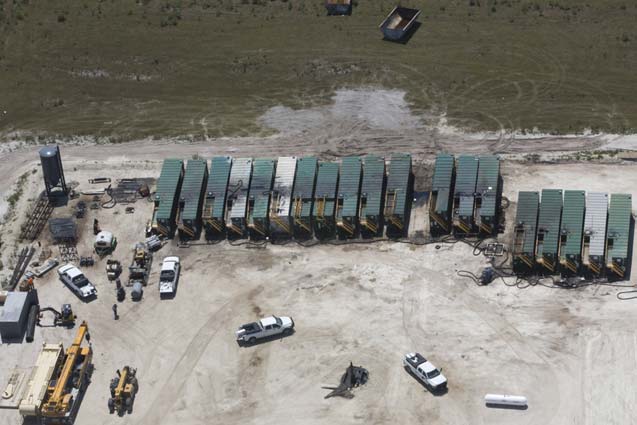 Collier-Hogan well site. © 2014 Julie Dermansky
Collier-Hogan well site. © 2014 Julie Dermansky
Aerial footage of the Collier-Hogan well site shows oil on the ground and on top of tanks. This has led some industry insiders to speculate that something went wrong.
Dan A Hughes didn’t respond to a DeSmogBlog inquiry about oil on the tank tops at the drill site.
Dee couldn’t say what went wrong, but wrote DeSmogBlog, “I can tell you there has been no blow out at the Collier-Hogan well, nor any known or reported casing or cement failure.”
She suggested: “The source of the oil on what you refer to as the tanks in the picture I could only reasonably speculate as being from the loading of oil into the tanks which is loaded from the top”.
Hughes has denied allegations of fracking.
Instead of using water mixed with chemicals to create fractures, as is common in fracking, the company was using acid, David Blackmon, a spokesman for Dan A. Hughes Co., told the Tampa Bay Times.
“We plan to fully perform the well monitoring and other actions required in the Consent Order and are already in the process of doing so,” the company said in a statement. “We are confident the results will show that our operations at the Collier Hogan site are safe, and that the ground water was not impacted by our operations.”
The Dwyers and the Durans raise concerns about public safety ranging from potential health impacts to lack of an evacuation plan to traffic concerns. The drilling is also happening in the endangered Florida panthers’ habitat and the Collier-Hogan well, now shut down, is next to the Corkscrew Swamp Sanctuary, a 5,000-year-old-forest with the last remaining old growth cypress trees in the world.
 Corkscrew Swamp Sanctuary. ©2014 Julie Dermansky
Corkscrew Swamp Sanctuary. ©2014 Julie Dermansky
“Drilling three miles deep through all our fresh water aquifers in the Big Cypress Swamp watershed is not safe,” Karen Dwyer wrote in a letter urging the state to deny the drilling permit next to the Durans’ home.
“If something goes wrong, the watershed that feeds the Picayune Strand State Forest, 10,000 Island National Wildlife Refuge and Everglades National Park could all become contaminated.”
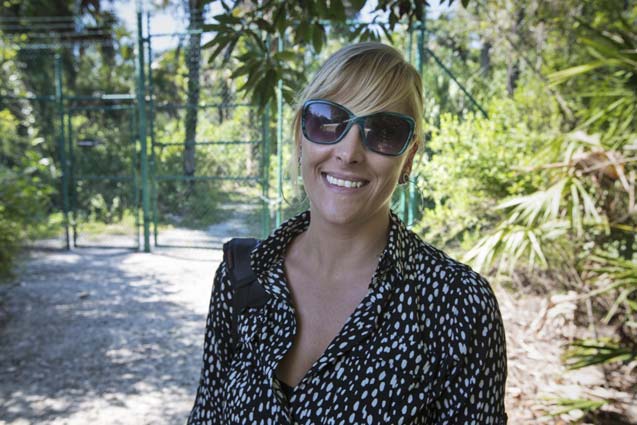 Alexis Meyer, representative of the Sierra Club’s Florida panther critical habitat campaign at the Florida Panther National Wildlife Refuge. ©2014 Julie Dermansky
Alexis Meyer, representative of the Sierra Club’s Florida panther critical habitat campaign at the Florida Panther National Wildlife Refuge. ©2014 Julie Dermansky
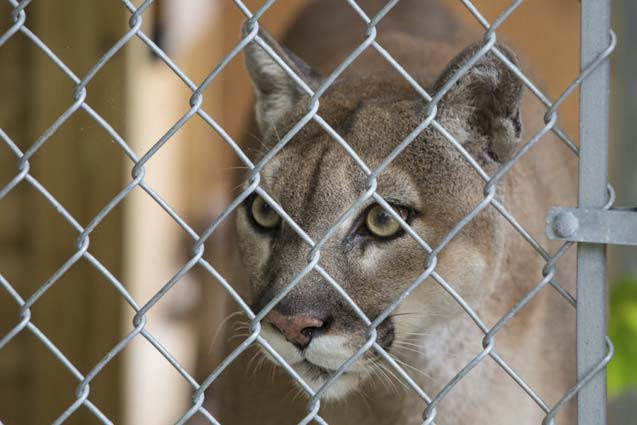 Florida Panther at the West Palm Beach Zoo. © 2014 Julie Dermansky
Florida Panther at the West Palm Beach Zoo. © 2014 Julie Dermansky
“There are only between 100 and 160 Florida panthers remaining, making them the most endangered mammal in North America, perhaps in the world,” Alexis Meyer, spokesperson for the Sierra Club’s Florida panther critical habitat campaign, told DeSmogBlog. “Telemetry data clearly identifies a tremendous amount of panther activity in the area Hughes has proposed to drill, including den sites. Previous statements by the Dan A Hughes Company that no panthers have been found on the property is a blatant lie.”
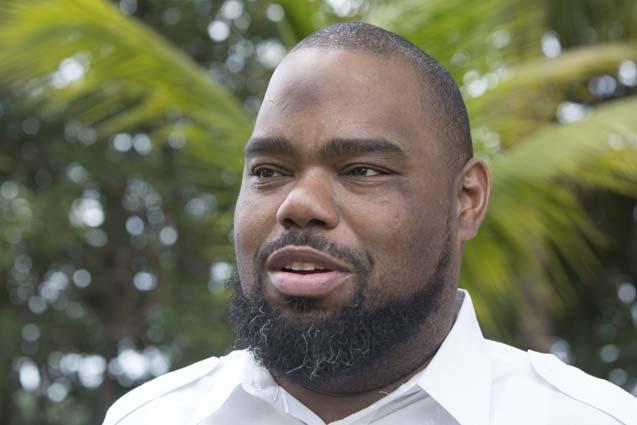 Florida State Senator Dwight Bullard. © 2014 Julie Dermansky
Florida State Senator Dwight Bullard. © 2014 Julie Dermansky
Florida State Senator Dwight Bullard (D) was made aware of the situation a year ago by concerned citizens. He supports his constituents’ efforts to stop fracking.
“The idea you green-light a permit even though you have such a public outcry — and the outcry in essence means nothing to the permitting process — screams lack of democracy. When residents in a community don’t want something to happen and they feel as though they have no say so, anyone who calls himself a public servant should be appalled,” he told DeSmogBlog.
Bullard describes the existing drill site and the proposed site next to the Durans’ home as “too problematic,” pointing out the proximity to Big Cypress Swamp watershed, the Florida Panther National Wildlife Refuge, the Everglades Restoration area, the water supply which affects 300,000 people and the porous limestone geology. He described the site as the “absolute worst area to begin a drilling project in the history of drilling projects.”
 Panther crossing in Naples, Florida. © 2014 Julie Dermansky
Panther crossing in Naples, Florida. © 2014 Julie Dermansky
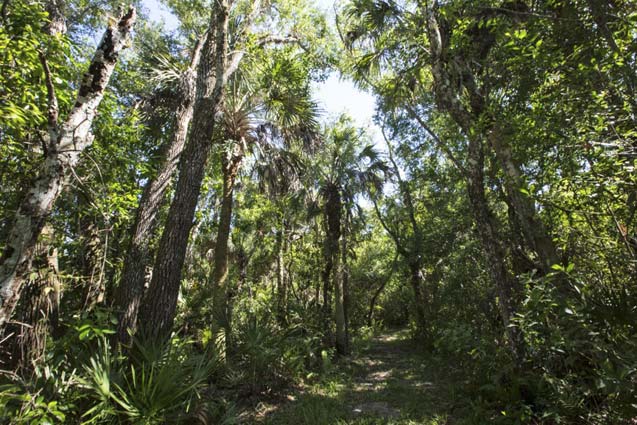 Florida Panther National Wildlife Refuge.
Florida Panther National Wildlife Refuge.
U.S. Senator Bill Nelson (D-Fla.) also weighed in earlier this month.
“We cannot tolerate expanded industrial drilling activities that pose a threat to the drinking and surface water so close to the Florida Everglades, one of the world’s great environmental treasures,” he said.
Last week the tide began to change in Naples. After the Collier County commissioners learned that Hughes had not only disobeyed state orders, but also may have contaminated the water supply, they voted unanimously to challenge the consent order and petition the state to revoke the permit.
Karen Dwyer was elated but warns the Everglades are not out of danger yet. Collier recently leased an additional 350,000 acres for seismic testing.
The battle against enhanced drilling and fracking in Florida continues, with concerned citizens the leading the way.
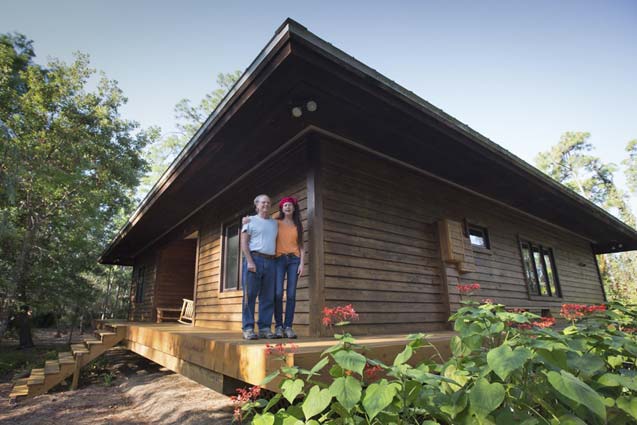 Karen and John Dwyer at their home in Naples, Florida. ©2014 Julie Dermansky
Karen and John Dwyer at their home in Naples, Florida. ©2014 Julie Dermansky
 Trail in the Corkscrew Swamp Sanctuary. ©2014 Julie Dermansky
Trail in the Corkscrew Swamp Sanctuary. ©2014 Julie Dermansky
Trump is silencing political dissent. We appeal for your support.
Progressive nonprofits are the latest target caught in Trump’s crosshairs. With the aim of eliminating political opposition, Trump and his sycophants are working to curb government funding, constrain private foundations, and even cut tax-exempt status from organizations he dislikes.
We’re concerned, because Truthout is not immune to such bad-faith attacks.
We can only resist Trump’s attacks by cultivating a strong base of support. The right-wing mediasphere is funded comfortably by billionaire owners and venture capitalist philanthropists. At Truthout, we have you.
Truthout has launched a fundraiser to raise $50,000 in the next 9 days. Please take a meaningful action in the fight against authoritarianism: make a one-time or monthly donation to Truthout. If you have the means, please dig deep.